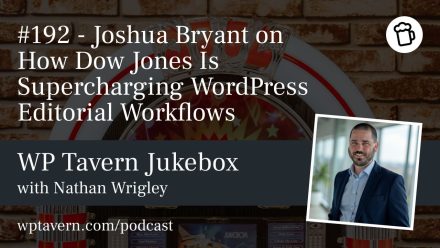Nathan Wrigley interviews Roger Williams, Kinsta’s partnership and community manager for North America, about rethinking how companies sponsor contributions to WordPress and other open source projects. Roger describes his role as the bridge between Kinsta and the wider WordPress ecosystem, and explains Kinsta’s recent launch of a sponsored contributions program in early 2025.
Why sponsorship matters
Roger frames the problem as a spectrum between traditional open source philanthropy and business realities. WordPress powers over 40% of the web, yet many maintainers lack funding. As companies rely on WordPress for their products and services, they face a choice: remain passive consumers or invest in the project that underpins their business.
To get more companies involved, Roger argues we need different conversations. For contributors inside the project the need to fund work is obvious. For companies that use WordPress daily, the benefits may be less visible. For the general public, the concept of people working for free on critical infrastructure is often surprising. The goal is to bring the middle group—the companies that are close to contributing but need practical reasons—to participate.
Three business-focused reasons to sponsor
Roger recommends speaking in business language to gain executive buy-in. He breaks the benefits into three categories:
– Strategic: Core alignment with company objectives. For hosting providers, better performance, security, and stability in WordPress directly reduce support and infrastructure costs.
– Operational: Addressing technical debt. Contributing to the upstream project offloads maintenance and spreads responsibility across the community, which can lower long-term costs and improve reliability.
– Second-order: Harder-to-measure benefits like community networking, hiring pipelines, employee learning, and goodwill. These philanthropic outcomes still matter but are complementary to strategic and operational cases.
Who and what to sponsor
Kinsta’s program focuses broadly rather than only on core code contributors. Other vital areas include documentation, Polyglots (localization), event organizers, contributor-day volunteers, and content creators (podcasts, blogs) that grow and onboard new users. Roger emphasizes that these non-code contributions can have major downstream value—improving onboarding, lowering support requests, and expanding WordPress usage globally.
Practical steps for companies
Roger’s advice for organizations that want to start sponsoring contributions:
– Don’t wait. Start small with a budget the leadership is comfortable approving and iterate.
– Set priorities. Identify which project areas most align with your company goals (e.g., performance, localization, docs).
– Build simple processes. Create an intake form asking contributors about their work, goals, and how the sponsorship will be used. Track spending and outcomes.
– Be modest with marketing asks. Keep sponsor-related obligations low-effort—inviting contributors to speak in a company podcast or write a blog post is fine, but marketing should not be the primary motive.
– Be ready for results. Have tracking and content prepared so you can show executives early wins and justify continuation of the program.
How contributors should approach companies
Roger encourages contributors seeking sponsorship to present a business-aware pitch: outline what they work on, the tangible benefits to a potential sponsor, and specific asks. Rather than cold-contacting many companies, start with likely targets—hosting providers and major ecosystem players—and be prepared to discuss how the work helps the sponsor strategically or operationally. Offering to help set up a sponsorship program for a company without one can also open doors.
Selecting contributors
When choosing people to sponsor, Kinsta looks for demonstrated work, reputation within the project, and mentorship activity—contributors who not only complete tasks but help others get involved. Direct ticket-based asks are possible, but early programs often focus on supporting established contributors and enabling them to do more.
ROI and marketing
Treat sponsorship as brand marketing with indirect returns. Sponsoring contributors gets noticed within the community and generates organic, one-to-one conversations about the sponsor. Roger suggests gentle promotion: interview sponsored contributors on a company podcast, host a short write-up, or let contributors mention the sponsor in a low-key way. Avoid turning sponsorship into aggressive marketing—maintain respect for community norms.
Organizational challenges and internal buy-in
Inside a company, Roger advises:
– Understand organisational goals: Frame sponsorship in terms executives care about (e.g., reducing support costs, improving security).
– Be patient but prepared: Conversations and approvals can take time; have processes, candidate lists, and metrics ready once budget appears.
– Anticipate objections: Prepare responses about why funding is necessary and how it benefits the business.
– Clarify administrative details: Decide whether sponsorships will be simple (credit card, GitHub Sponsors) or require contracts and legal review.
Coordinating across companies and the wider ecosystem
Roger acknowledges existing efforts like the WP Community Collective (WPCC) that provide mechanisms for pooling and distributing funds. While consortium approaches can scale and centralize funding, they add complexity and slower decision-making. His pragmatic counsel is to get individual organizations started quickly rather than wait for perfect centralised solutions, while remaining open to collaboration and referrals among companies.
Final recommendations
– Start where you are: small budgets, clear priorities, and simple processes.
– Sponsor individuals as an accessible first step; sponsoring employee time is a larger organizational change.
– Focus on long-term relationship-building in the community and support contributors who mentor others to amplify impact.
– Keep marketing modest and respectful; let contributions be the primary aim.
Where to find Roger
Roger is active on LinkedIn and welcomes conversation and challenges there. He and colleagues Marcel Bootsman (Europe) and Alex Michaelson (APAC) are handling Kinsta’s sponsorship efforts and are open to collaboration and suggestions.
The interview makes a practical case for expanding sponsorship of WordPress work by translating community needs into business terms, starting small, and building processes that allow companies and contributors to collaborate without undermining the volunteer spirit that has driven WordPress for decades.



